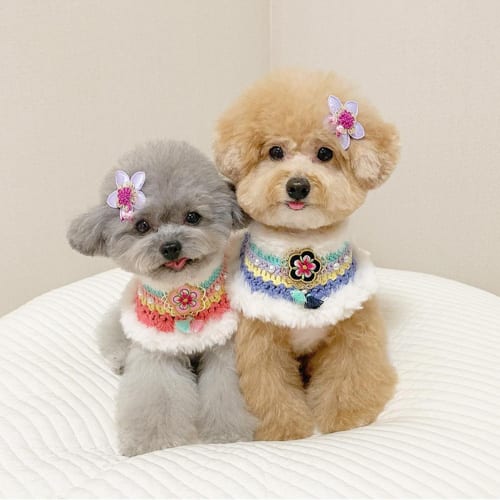If you’re a dog owner, you know that your dog isn’t just your pet—he’s part of the family. It’s important to ensure that your dog is getting the best nutrition possible, which means a combination of great food and plenty of exercises.
Whether you’re a dog owner or not, you’ve likely had a conversation with someone about the nutritional needs of canines. What do dogs need?
How much nutrition do they need? What, if anything, is a dog owner required to feed a dog? The answers to these questions may be surprising.
While many dog food brands have a reputation for quality nutrition, holistic nutrition is a different matter. Often, the food itself isn’t the problem; it’s how the dog owner handles it.
As we all know, the first few months with a new dog can be challenging. What do I need to know? What do I need to buy? How do I make my dog feel at home?
There’s no way to cover all the answers in just one article, but we’ve pulled together information about the essentials things you need to know regarding dog nutrition:
The best dog food is one that your vet has prepared specifically for your dog.

Not all dog food is created equal, and even the best brands, made with the best intentions, can be dangerous to your dog’s health.
A dog’s diet should focus on quality ingredients rather than empty calories, and many people accidentally overfeed their dog or buy commercial foods loaded with unhealthy fillers.
Pet nutrition experts agree that most adult dogs need about 15 to 20 calories per pound each day, a figure that can be adjusted up or down based on your dog’s age, weight, and activity level. (For example, a 40-pound dog that eats 2 cups of dry food each day should be consuming about 880 calories.)
Food like ZIWI JAPAN is a good option to keep your dog nourished and well-fed.
Related Articles –
- Maltese Shih Tzu – Surprising Things About Malshi
- Bernedoodle Dog Facts and Information
- Teacup Maltipoo – 10 Things You Should Know
Just like you, your dog needs plenty of nutrition to stay healthy.
While some recommendations are the same for both of you (it’s always a good idea to fill up on fruits and veggies), there are also plenty of differences between human and canine nutrition.
For example, your dog will need more protein than you, even if you’re an athlete since his muscles need to maintain a lot more physical activity than yours do.
As a dog owner, one of the most important things you can do for your pet is to give it a well-balanced diet.

But what does that mean? What does a well-balanced diet include? The Basics: The core of a well-balanced diet for dogs is the right blend of protein, fats, fiber, and other nutrients.
These are measured in percentages and are typically listed on the side of dog food packaging.
If your dog is like most in the United States, he or she is probably the family’s beloved pet. But most people don’t realize that dogs need a specific amount of essential nutrients like carbohydrates, protein, and vitamins to live a healthy life.
The essential nutrition your dog needs (or The essential nutrition your dog needs) is generally different from food to food, depending on age, breed, health, and other factors.
A dog’s nutritional requirements change as it grows and ages, so it’s important to understand what your dog needs at each stage of its life. As a dog ages, its nutritional needs change, too.
When feeding your dog, it’s important to consider the essential nutrition your dog needs to stay healthy and happy.
Simply feeding your dog the same food every day without considering the essential nutrition your dog needs could mean they aren’t getting the right nutrients to stay healthy.
To help you get started, we’ve compiled some information on how to identify the essential nutrients your dog needs to stay healthy.
If you’re a dog owner, then you know how important it is to provide your dog with the essential nutrition he needs to stay healthy and happy.
The diet of your canine companion can significantly impact his health, from affecting his mood and behavior to affecting his chances of getting certain diseases.
- Top 25 Cutest Poodle Mixes
- Sheepadoodle – Everything You Should Know About
- Why Does My Dog Eat Grass
Your dog is your best friend, a companion who is always there for you.

But, did you know that your best friend also needs you? Dogs are living, breathing creatures with nutritional needs just like humans.
They are omnivores, meaning they require both meat and plant-based foods for optimal health. If your dog is like most, he eats kibble from a bag, which may be a less-than-optimal choice.
You love your dog and want to make sure he or she is happy and healthy, but you’re not sure what the best foods and nutrition are for your dog.
You feed your dog table scraps, but you’re not sure how much table scraps are good for them. You take your dog to daycare, but you don’t know if the dog caretakers are giving your dog the right nutrition.
The problem is that you don’t know what you don’t know. You need to educate yourself about what your dog needs to be happy and healthy and ensure they live a long and healthy life.
If you’re like most pet owners, you’re concerned about your dog’s health and well-being.

You want to make sure she’s getting everything she needs from the foods you feed her. It’s a good idea to check in with your vet about your dog’s nutritional needs regularly.
However, some commonly recommended dog food brands aren’t as nutritious as you might think.
The best dog food for your dog is the one that meets all the nutritional needs that your dog has.
While the daily nutritional requirements for dogs are not different from those of humans, what exactly is needed and recommended varies depending on the dog’s size, age, and level of activity.
The best dog food should be one that lasts for about a month and comes in enough portions for you not to have to worry about if the food is fresh.
Did you know that dogs are more like us than you might think? According to the human-canine bond theory, people and dogs are similar in how they view the world because they cannot easily communicate with each other.
Part of that similarity is that both species have specific nutritional needs. For instance, dogs require protein in their diets because they are omnivores, just like people.
The difference between the two species is that dogs are more efficient at breaking down and digesting proteins than people are.
Be a Responsible Dog Owner

Owning a dog is a big responsibility. And while they can be a lot of work, they also provide a lot of benefits. For example, dog ownership can provide companionship and support for its owners.
Research also suggests that pet ownership may be linked to a reduced risk of cardiovascular disease.
When planning for a new dog, it’s a good idea to make sure you know what your dog needs to have a healthy and happy life.
Canines have rapidly become a staple of American life in recent years. As a result, pet owners must have a basic understanding of canine nutrition to feed their dogs properly.
Canines are “obligate carnivores,” which means that they require a high-protein, meat-based diet to thrive.
While dogs have been domesticated over thousands of years, their digestive and nutrient requirements are still very much like wild dogs. This means that even the best dog food for your canine isn’t going to look like a bag of kibble.
Many dog owners are convinced that their beloved four-legged friends are true omnivores, capable of eating anything and everything. After all, they’re related to wolves, aren’t they?
Not really. Dogs are members of the Canidae family but are more closely related to foxes; wolves are part of the Canis family and are more closely related to coyotes.
Not only that, but wolves themselves can’t live solely on meat; they need plants to survive, too. (Not to mention that it’s nearly impossible to find a dog owner who has never baked a batch of bacon-flavored treats for their pup.)
Feed Your Dog Properly

It’s important to keep your dog healthy. A well-fed, healthy dog is a happy dog, and a happy dog is a loyal one!
Dogs are known to be very affectionate animals and will stick with their owner through thick and thin. All you need to do is make sure you are taking care of your dog’s basic needs.
If you’re a pet parent, you understand the joys and the challenges of raising a dog. Sure, you love your puppy, but you also want to make sure that he’s as healthy as possible.
As your dog’s caretaker, your first responsibility is to ensure that he is getting everything he needs to stay happy and healthy.
One of the most important things you can give your dog is a good diet; you must understand what your dog needs to flourish.
In this post, we’ll cover the basic nutrition your dog needs and tips for helping your dog live a long and happy life.
The Essential Nutrition Your Dog Needs

When you have a dog, you have to make sure you give them the essential nutrition they need. What is the essential nutrition your dog needs?
Many dog owners don’t realize that their pets need many the same nutrients we do and in the same amounts, although they may not need as many calories as we do.
This is because dogs are predators by nature and have high metabolisms. As a result, dogs are very active and burn more energy than we do. But that doesn’t mean they don’t need to eat and drink!
People often focus too much on their dogs’ “food” and not enough on their “nutrition.” This is an error.
Dogs are considered to be man’s best friend, and there’s a good reason for that. They are loyal, generous, and can always find the time to play or cuddle and make you feel better when you are down.
But like all living beings, dogs also need nutrition to stay well. You may have heard that dogs are carnivores, and therefore it is best to feed your dog a lot of meat. This is true, but it is also true that dogs also need to eat some plants to stay healthy.
Vitamins
Vitamins are organic compounds which required dogs in low concentrations for their metabolic activities. Most vitamins cannot be synthesized in the body, so it is necessary to gain from a diet.
| Vitamin Type | Functions | Diseases [Deficiency/Excess] |
|---|---|---|
| A | Growth, immune function, vision, fetal development,etc. | Loss of body weight, joint pain, skin lesions |
| D | Phosphorous balance, maintenance of mineral status | Rickets, loss of muscle tone, diarrhea, muscle atrophy |
| E | Defense against oxidative damage | Renal degradation, degeneration of skeletal muscles, reproductive failure |
Minerals
Minerals are the nutrition that cannot be synthesized in the body and must need to gain through the diet. They are the major constituents of teeth and bones. Also essential to maintain fluid balance in many metabolic reactions.
| Mineral Type | Function | Diseases[Deficiency/Excess] |
|---|---|---|
| Calcium | Formation of bones and teeth, impulse transmission, muscle contraction | Skeletal aberrations, skeletal abnormalities |
| Phosphorus | Skeletal structure, energy metabolism, DNA and RNA structure | Poor appetite, reduce weight gain |
| Magnesium | Hormone secretion and function, enzyme function | Irritability, reduction of weight gain |





